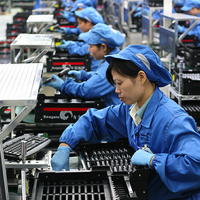The rampant globalization meme of the 1990s was that the state would wither away, leaving nonstate actors to rule -- or ruin -- the world. The terror attacks of Sept. 11 seemed to confirm this notion, triggering all manner of academic fantasies that a proliferation of super-empowered individuals would overwhelm the world's declining and failing states. But when globalization's alleged coup de grâce arrived in the form of the 2008 global financial crisis, not only did the world not slide into widespread conflict, as so many anti-globalization hysterics predicted, but the state made quite the comeback.
Nowadays, if globalization suffers a dominant meme, it's that states and not markets rule -- Mad Max has once again been replaced by Big Brother. Paranoid conspiracy theories of "socialist-communist" plots have made a comeback, animating a new generation of American demagogues who imagine that our Cold War victory has been subversively sabotaged from within. The latest example is the just-released "Homefront" video game that posits America's rapid decline and subsequent occupation by -- get this -- a "Greater Korean Republic" led by Kim Jong Eun! All good fun until you realize how easily our young people internalize these scenarios.
Much like in the 1970s, when the West's major funk led many of our academics to project a "third way," by which communism and capitalism would "converge," we now witness serious thought-leaders -- at this year's Davos forum, for instance -- expressing genuine envy of China's state capitalism.

